Shine out, fair sun, till I have bought a glass
That I may see my shadow as I pass
Shakespeare: Richard III Act 1 Scene 2**
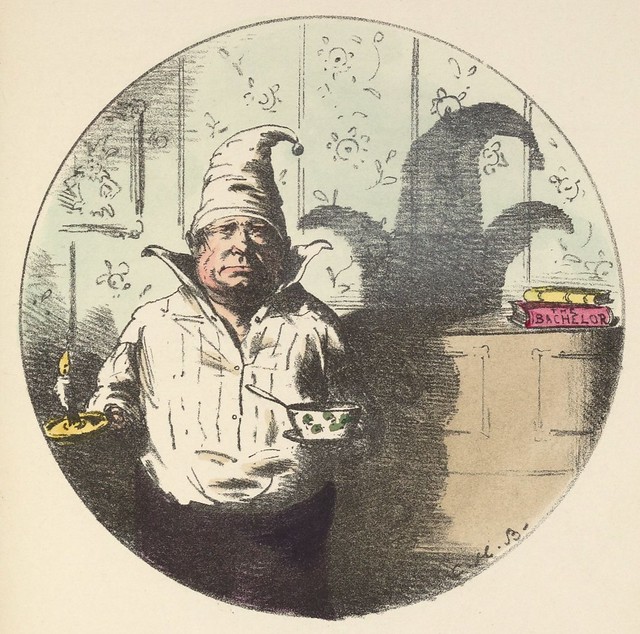
A Foolscap
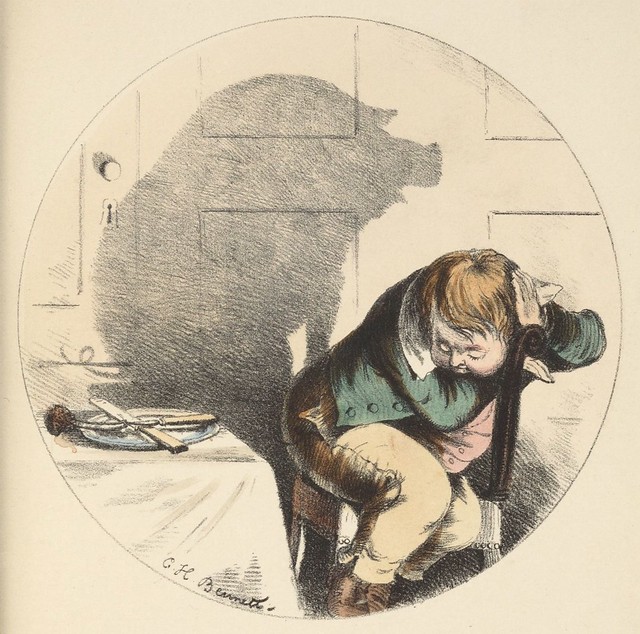
A Greedy Pig
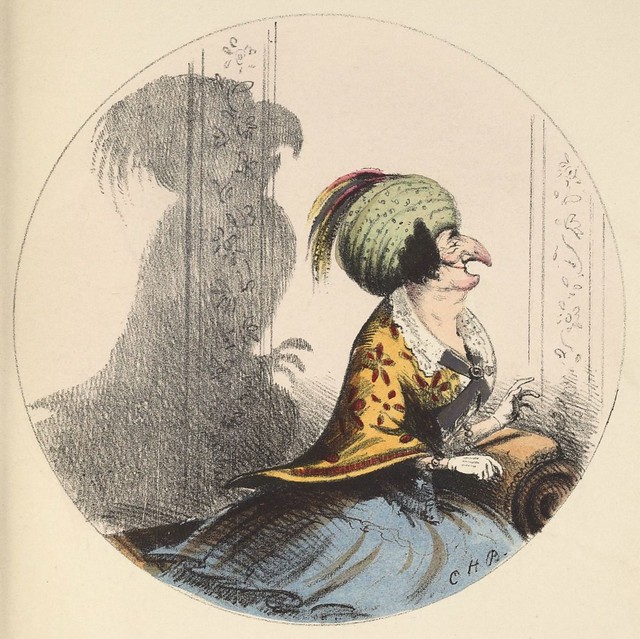
A Parrot
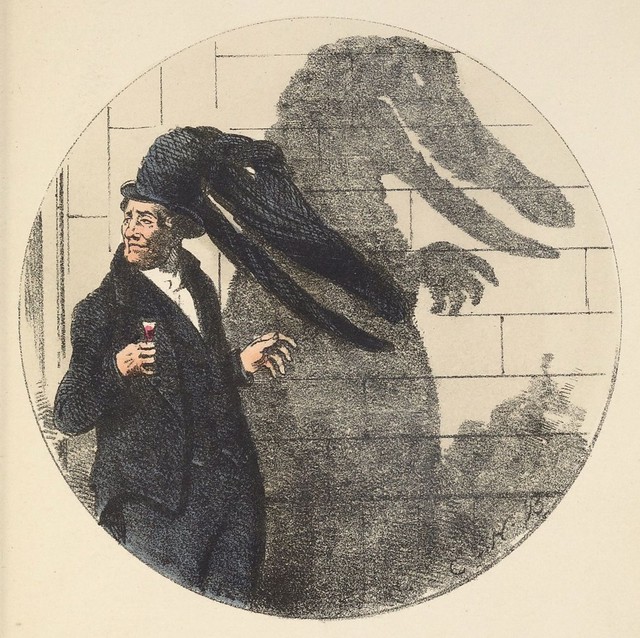
A Crocodile
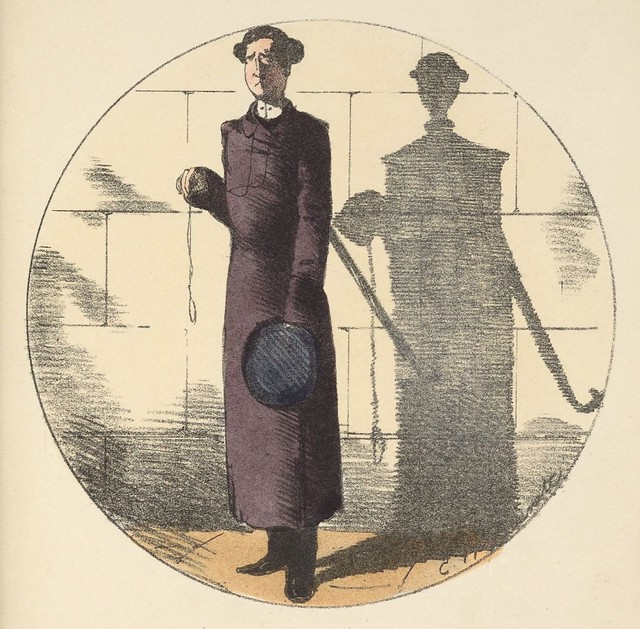
A Pump

A Bantom
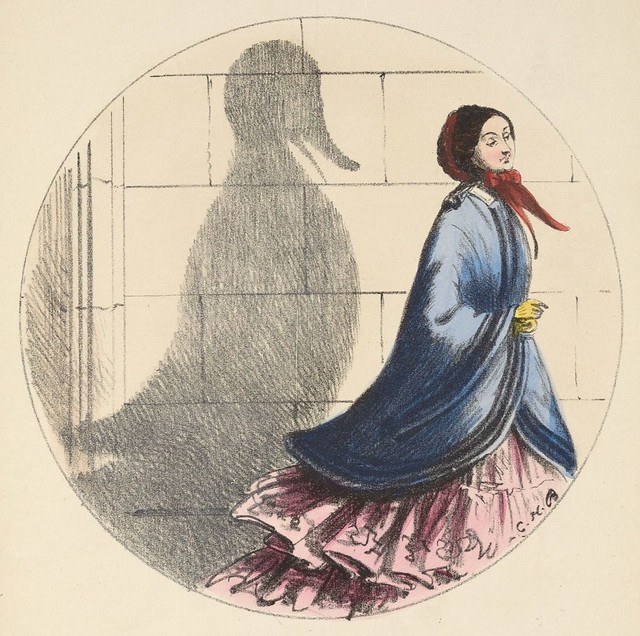
A Little Duck
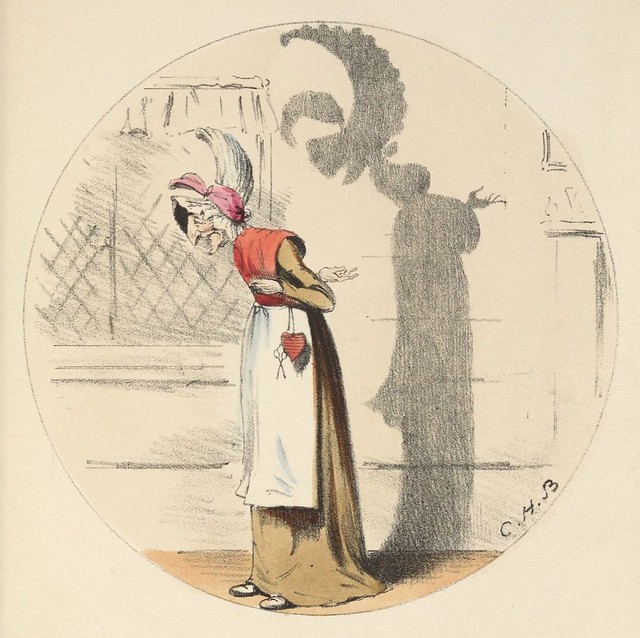
An Old Fashion

'Shadows' title page
[all images were cropped from the full page layouts and were lightly cleaned of background spots]
"Charles Bennett (1829-67) was a talented illustrator who worked mainly as a caricaturist for periodicals such as the Comic Times and Comic News; he joined Punch in 1865, but died in poverty only two years later. He wrote stories for his own children and illustrated them with delightful comic details, often cutting his own wood blocks."
[source ::: home]
"He also illustrated children's books like 'Papernose Woodensconce' (1854), 'The Faithless Parrott' (1858) and 'Mr. Wind and Madame Rain' (1864). The stories Charles Bennett drew for Punch often showed a sequence, and can be seen as an early form of comics."
[source]
- 'Shadows' by Charles Henry Bennett was published in London in the 1850s and has been digitised by Widener Library at Harvard University. It contains about 24 coloured lithographs and was the first volume from (I think) a 2 or 3 book set. The caricatures were quite popular at the time for the comical way they allegedly revealed the subject's true character through the shadow cast.
- Via Tip of the Iceberg: Unique & Unusual Finds at the Harvard Library.
- Wikipedia article on CH Bennett.
- The Mary Evans Picture Library has a collection of Bennett illustrations, including a set of drawings similar to those above from 'Shadow and Substance', 1860. [They sell prints via Amazon too]
- The Optical Toys site has a couple of covers of 'Shadows' books. [home]
- There are references to Bennett all over the place, but none are particularly comprehensive. He was a prolific and versatile artist who is regarded as a pioneer in the comic illustration form. You can get a bit of an overview of his range from a google images search.
**The Shakespeare passage^ up top has Richard being reminded by a mirror ("glass") that he is always on stage and that a reflection, like a shadow (metaphor), is divorced from the true nature of character portrayed in reflected or shadowed form.
No comments:
Post a Comment